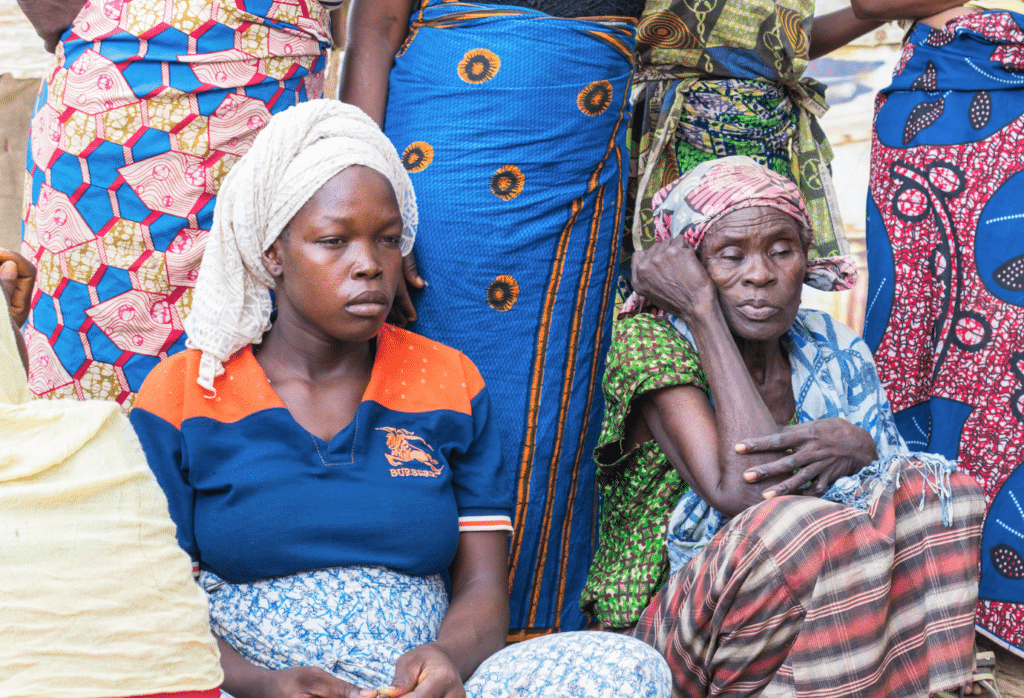The plight of women and girls following the Boko Haram kidnapping in 2014 and the health risks faced by pregnant women in Nigeria’s refugee camps is an issue examined this month by CNN’s As Equals series.
Nigeria has one of the highest maternal mortality rates in the world — a 2019 study found that a Nigerian woman has a 1 in 22 lifetime risk of dying during pregnancy, childbirth or postpartum/post-abortion.
The country, which has a population of more than 223 million, also has the third highest number of internally displaced people (IDPs) in Africa, according to the Internal Displacement Monitoring Centre (IDMC).
More than 4.5 million Nigerians are currently classed as internally displaced people due to ongoing conflict and violence in the country, and natural disasters including the widespread flooding last year, which claimed more than 600 lives and displaced over 1.4 million people.
In the country’s largest states of Borno, Adamawa, and Yobe, women and children make up three quarters of the 2 million IDPs in those states, according to a recent Camp Coordination and Camp Management report.
CNN reporter Adie Vanessa Offiong visited the Durumi refugee camp in Nigeria’s capital city, Abuja, which is one of 264 hubs across the country, where hundreds of thousands of IDPs are struggling under a lack of basic medical care — especially women and children.
In Durumi, most of its 3,000 temporary residents don’t have the means to pay for food or medication.
For pregnant women, a lack of adequate maternal healthcare and antenatal services are putting their lives, and their children’s lives, at risk.
The camp’s Women’s Leader told CNN that birthing suites in the camp’s medical sites are very basic and barely meet the standard levels of hygiene for safe delivery.
“It was a tent that we swept, and I would put a mat or wrapper on the floor for the women to lie down on to give birth,” Liyatu Ayuba said.
Ayuba has become the campsite’s unofficial midwife. She explained that basic hygiene equipment such as gloves are not always available. When they are not, she would wrap her hands with polythene bags and use razor blades to cut umbilical cords.
One woman, who is currently pregnant with her tenth child, told CNN “I gave birth to three of [my children] with [Ayuba’s] help on a mat under the shelter. She cut the umbilical cord and bathed the baby.”
Most camps rely on NGOs and charities to fund its healthcare services. In 2019, one such organisation set up a health post in Durumi, using a repurposed shipping container.
Inside, the space was separated by wooden boards to partition the birthing area from the consultation room. The birthing area housed a bed for the mother, a baby cot, drip stand, chair, trolley and empty containers.
The consultation room included a table, two chairs, a bed, and a cupboard filled with medicines and medical equipment.
According to Ayuba, since the installation of this temporary health post, the camp has not recorded any maternal deaths.
Nevertheless, basic amenities such as clean water and medicine continue to be limited and difficult to obtain.
One nurse in the camp told CNN, “We don’t even have folic acid or anti-malarial medicine to give them. I have to write these for them to go and buy.”
Pregnant women and those planning to conceive are encouraged to take folic acid, since it has been proven to reduce the risk of certain birth defects.
According to the nurse, most of the camp’s pregnant women can’t afford the supplement — which costs them ₦3,000 (just under $6) for 100 tablets.
Getting clean water at the camp is also a challenge, with one mother explaining she had to hire someone to collect fresh water every day in the final weeks of her pregnancy.
This means more money is spent on hiring this collector of water, and less money for her health and well-being.
On top of that, there’s the risk of catching malaria, which poses a variety of risks during pregnancy, including premature labour and miscarriage.
“I can’t afford the [anti-malaria] treatment,” one pregnant woman said. “If it happens, I am dead.”
Dr Charles Nzelu, Head of Special Duties at Nigeria’s Federal Ministry of Health told CNN that while maternal and child health remains a high priority for the government, the Ministry does not intervene with states and local governments.
“As a government, we are still working to make sure that both the state and all these agencies of government that are charged with the direct implementation do their best to make sure that those inhabitants of IDP camps are well taken care of,” he said.
Since 2018, CNN has published a regular series called As Equals to highlight gender inequality injustices worldwide. Investigations have ranged from child marriage, pay inequalities in elite sport, maternal mental health and reproductive rights in developing nations. The above quotes have been shared with permission from CNN. You can read CNN’s full report on the plight of pregnant women in Nigeria’s refugee camps here.


